Guest blog by Sebastiao Anthony Rodrigues
A dozen years has passed by ever since Glenn Albrecht has defined home sickness suffered at home as ‘Solastalgia’. In an article published in a Journal ‘Australasian Psychiatry’ in February 2007 issue he liked up human distress to eco-systemic distress. Healthy home he argued leads to healthy human lives. Home refers to the ecological well being of the surroundings of Human. Even though his article provoked in the context of Australian Indigenous and non-indigenous people’s response to the companies engaged in open cut coal mining the concept makes sense in other parts of the world that experiences ecological distress as well as human distress. There is hardly any place in the world today that is not faced by eco-systemic distress due to natural or anthropogenic factors.
Due to my engagement with Zuari river fishing community in Goa over the past few years its possible to share certain Solastalgic points involving life with fishing and beyond fishing. Certain development came to my attention that were viewed by fishing community as threat to their lives and has potential to escalate into ecological and human stress.
The recent list includes stationing of mobile phone base towers in Bambolim and Nauxim villages posing radiation risks, Leasing out of Zuari river to set up two Marinas at Nauxim and Sancoale, Commissioning of water sports by a five star hotel Grand Hyatt, Illegal fishing very close to the shore by Trawlers and Purse seine boats, Mining Barge transportation objecting fishing in the middle of river, Scratching of river bed by mining barges leading to high level of fish mortality, Unloading of rejected iron ore in the Middle of river near Nauxim, Expansion of Mormugao Port Trust (MPT) to facilitate import of Coal leading to dredging of river, Declaration of Zuari as National Waterway along with 5 more rivers in Goa, Attempt to shift off shore casinos from Mandovi into Zuari river, Increasing plastic floating in Zuari leading to disruptions in fishing activities, Clandestine release of sewage into Zuari river by 5 star hotels, relaxation of CRZ laws in 2019 and Increasing pressure on fishermen by rich settlers to stop drying their nets on Siridao beach as its looked upon as ‘eyesore’.[i]
The past long term issues that have carried forward and continue to cause stress to fishing and other coastal community. The village such as Cacra is being viewed as site for construction of Jetty for docking of Ships. One attempt by MPT permitting mining company Fomentos to construct Jetty failed in 1997 despite police repression. Similar attempts have continued and pressure on coast has increased on entire Northern coast of Zuari river with plans to set up luxury hotels and widening of narrow village roads to facilitate heavy traffic via Siridao coast. Goa University was set up at a land that was cultivated by ‘illiterate’ indigenous people for horticulture purpose. University location not only deprived indigenous people of their land but also face regular cheating in term of Jobs as Peons that goes for political appointees of the Politicians.
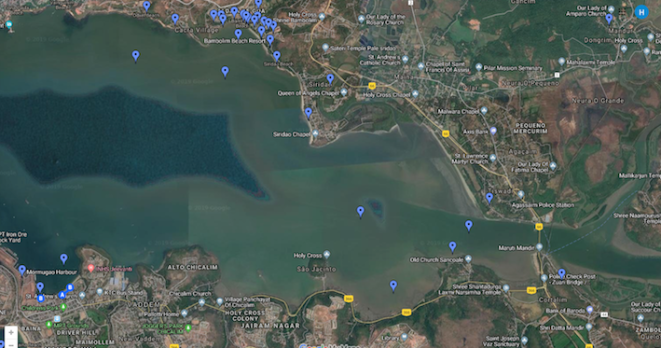
Livelihood option therefore gets dependent solely on fishing in Zuari river and sometimes in Arabian Sea. Also several other entities such as 5 star Hotel Grand Hyatt, Luxury housing project Aldia de Goa, International Centre, National Institute of Oceanography, 5-star hotel Cidade de Goa, Shayama Prasad Mukherjee Indoor Stadium, Goa Medical College and several real estate housing complexes share the same history when it comes to indigenous people losing their land of either habitat or cultivation or both. These indigenous people are Gawdas who then turned towards fishing, now partly put taxis for hire. However, all the Fishermen are not Gawdas, and there are others too. Quiet many are dead, others opted to take Portuguese Passport, still other processing their papers.
Arabian Sea fishing catch has depleted drastically due to Overfishing particularly by trawlers engaged in fishing by use of LED and through pair trawling or Bull trawling[ii]. The First hand account from Goa’s Coastal Security Police personnel on patrolling duty in the Arabian Sea is revealing, “There are two groups of trawlers that engage in LED fishing together. We have encountered group of nearly 70 trawlers fishing in a group using LED from Gujarat and another group with similar number from Malpe, Karnataka. They carry on fishing outside Goa’s coast. We Coastal Police find it risky to question them and even Navy ships do not intercept them. For they are organized group that rally around each other quickly.”
Even though Central Government banned LED fishing few years back its use continues to be widespread and Law enforcers themselves are refraining from law enforcement. The fall out of this is disastrous for ecology as well as livelihood of those dependent on fishing. Undoubtedly this has generated enormous amount of stress primarily among the fisher folks.
Sudden spurt in trawling and purse seine fishing carrying on within banned jurisdiction of 5 kms in Zuari river has triggered additional stress upon small scale Gillnet fishers from northern banks of Zuari river. The conflicts have been erupting time and again in Zuari due to these phenomena. In September 2018 there were series of direct clashes both inside the river and on land. Those carrying on legal gillnet fishing captured three purse seine boats doing illegal fishing and brought them to shore in Siridao beach. As a retaliatory measure around 40 people from Vasco, Cortalim and other villages descended in Siridao and threatened violence.
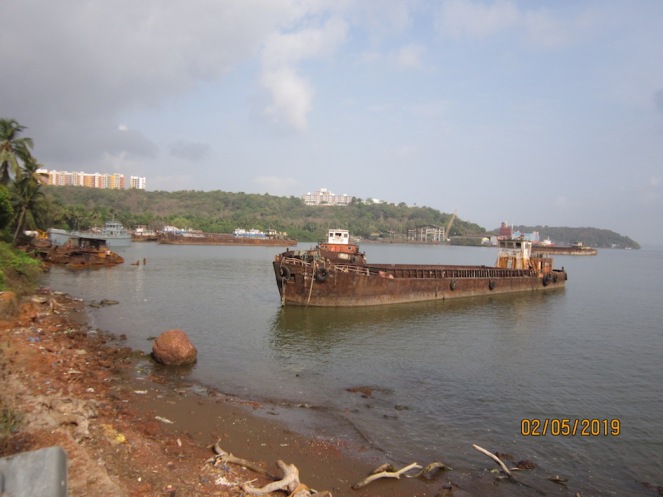
The scuffle continued for over three hours. Police though present remained silent spectators in the face of threatened violence against fishermen engaged in Gillnet fishery. Since issue could not be resolved three people who owned the boats filed Police Complaints against two fishermen from Northern bank of Zuari in Siridao and Cacra villages. The call letters were served and investigations carried on in December 2018 at Harbour Police station, Vasco. Northern side of Zuari fishermen went to Southern side of Zuari along with the Member of Goa Legislative Assembly Fransisco Silveira as the threat of arrest was anticipated triggering fresh stress. In January 2019 Police converted the call letters into charge sheet and forwarded to the Deputy Collector’s Court in Vasco. This fishing case is being heard in Vasco. Fishermen had to raise funds in order to hire lawyer to defend themselves at Deputy Collector’s court. Involvement of Police in fishing matter has further created stress on the fishing community in resistance to exploitative and unsustainable fishing.
There are earlier instances of Police repression against the same fishing community. In 1997 Police team was stationed in Cacra village to instill fear and Police food was supplied from 5-star hotel Cidade de Goa. This Hotel and Fomentos who wanted to put up Jetty in Cacra has same owner. One villager of Cacra was tortured in Police Custody when he spoke out against injustice in 1998. In 2014 one villager from Bambolim was slapped on face by a Police Inspector on Bambolim beach when the villagers opposed water sports boats as they are disrupting fishing activities. There is already a short history of Police excesses in these villages and latest action from Harbour Coastal Security Police station has potential to create further stress for the community.
However, Police is not the only source of stress for the community. Since 2015 Central government led by Shipping Minister Nitin Gadkari has attempted to revive Marina project in Zuari River. He made trip to Goa and spoke to media that fishermen should stop fishing in Zuari river. They should take up one trawler per four families and go to high seas for fishing.
Glenn Albrecht has also given hints as to how the defeat of the solastalgia could be initiated in his comment “The defeat of solastalgia and non-sustainability will require that all of our emotional, intellectual and practical efforts be redirected towards healing the rift that has occurred between ecosystem and human health, both broadly defined.”
Northern bank Zuari fishing community has demonstrated tremendous resilience in this regard. In the first place they are successful in building alliances with wider public in Goa and launch counter moves against the colonization of their Land, River and Lives. In recent history they fought Fomentos in 1997 and forced their Offshore Stockyard and Berth (OSB) project to be dropped from Cacra after the community successfully organized themselves, with support of a few Academicians like Alito Sequeira, Dr. Bikram Dasgupta and Dr. Patil, few Social Activists like Roland Martins, Caroline Collasso, Vidhya Prabhu, students like myself, and few Journalists.
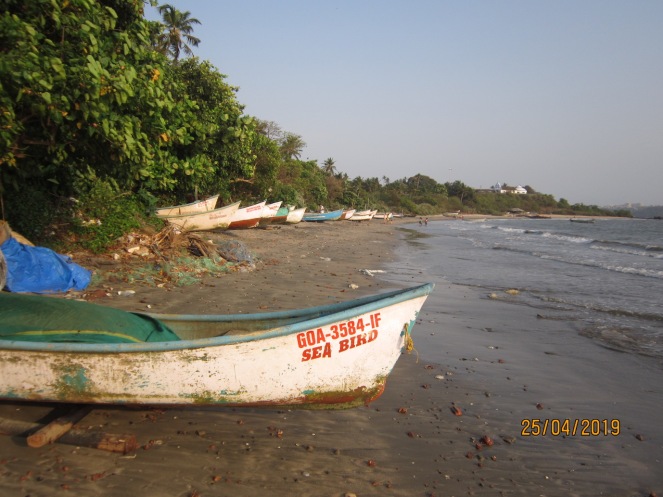
One of the lessons learnt is that community and intellectuals must collaborate in order to defeat solastalgia. Even though there are some signs of few fishers getting sensitive about ecological issues, wider intellectual community needs to pay attention to the issues under water in rivers and seas. Article 51-A (g) has placed fundamental duty of every citizen of India to care and protect rivers. Yet this is seldom taken seriously by mass of people. The concern for issues underwater is negligible as compared to issues on land above water. There is however some glimmer of hope due to wide public dissent expressed across State of Goa on decision to declare six rivers of Goa as National waterways with nearly 100 gram sabhas across Goa passing resolutions to condemn this decision.
This however is not enough considering intimate relations people of Goa share with Sea and Rivers in the form of popular food dish – Fish, Curry and Rice. There is need for a paradigm shift to expand daily concern of common people as well as intellectuals from being passively fish eaters to take up active role to care and compassion for affairs below surface of river and sea waters. Each trawler with its fishing gears inflicts damage to river bed equivalent to clearing of forest patch. Yet it remains away from Public scrutiny due to lack of sensitivity. Intellectuals have a major role to create this sensitivity towards sustainability of rivers. Entire affairs of rivers, seas and fishing cannot be left to fishing communities.
Public interventions are called for to help retain sustainability of rivers and seas. This need is felt even urgently in the light of threat of mass extinction of species known as Anthropocene and resultant “extinction rebellion” involving public and school students in various parts of the world. Fishing community must behave responsibly and avoid using fishing gears such as trawl nets, purse seine nets, bull trawling, pair trawling and collect free flowing ghosts fishing[iii] due to abandoned gill nets and other type of nets in the waters.
The second lesson is that it is not the issue of Single River but question of wholesome assault on several rivers in Goa particularly after declaration of six rivers of Goa as national waterways to facilitate Coal import, mineral exports and river bank tourism. This would necessitate huge dredging of rivers and bring disastrous impact on fishing. Dredging that was carried on at MPT Vasco was stopped by Supreme Court after it was found to be affecting marine ecology. Dredging of mouth of river Chapora between Vagator and Morjim is another disaster for fishing. Goa’s Six rivers are declared as National Waterways as per application made by Inland Waterways Authority of India (IWAI)[iv] to the Indian Ministry of Environment, Forest and Climate Change and dredging is being done to achieve that objective. In order to get funding for dredging Goa’s six rivers are declared as national waterways. Mining companies are directly behind this decision for declaring four rivers as National Waterways. For the remaining two Chapora and Sal it’s the tourism lobby.
Dredging in Zuari on the Southern side by Goa Shipyard is another disaster even though no voice against it is raised by fishermen who opposed dredging by MPT. Perhaps the status of Goa Shipyard as defense establishment has scared away the potential voice of protest. Nevertheless, the damage to ecology is equally harmful. We take note of shattering ecological defenses of Zuari River and base of fishing. Dredging of Zuari also envisaged in both marinas for the benefit of the rich tourists navigating in private yachts. The entire development as pointed above is ecologically hostile and creates situation of frustration amongst fishing community.
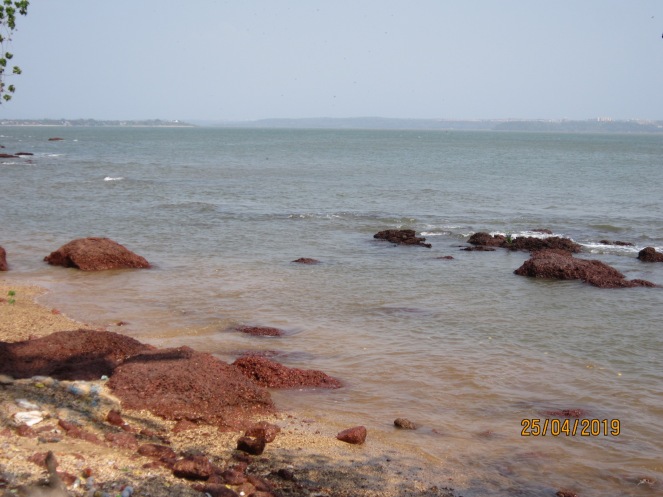
As response to this situation, campaign role in Zuari River has been taken up by various organizations such as Goa Unit of Bharat Mukti Morcha (BMM)[v] on wide ranging issues like illegal fishing, concerns regarding marinas, water sports and many more. Goenchea Ramponkarancho Ekvott (GRE) that was set up by late Mathany Saldanha in late 1970s has expressed its opposition to marinas on ecological grounds. Dialogue Empathic Engagement and Peacebuilding (DEEP) has ground level program amongst fishing communities on northern Zuari bank aimed at capacity building of the fishing communities as well as maintaining continuous connections with wider networks in India and Internationally by way of social media, academia and legal inputs. Various site visits, study tours to the fishing community is encouraged and facilitated with an understanding that fishing communities has frontal role to play towards comprehensive defense of rivers and seas, and sustainability within these waters. In fact this process needs to be expanded.
More and more people must be sensitized towards the reality of fishers and threats to the health of rivers and seas, and encouraged to discuss, write and speak out. All the schools, higher secondary schools, colleges, Goa University, BITS Pilani Goa campus on the banks of Zuari River must play stewardship role towards Zuari river and offer solidarity to fishing communities. This is much more than paying back to the society for we are living in a society that is fast zooming towards major crisis of Planet Earth stability. Reaching out towards Zuari river affairs is one way of taking up the responsibility. Point is: are we mature enough to take it up and fulfill the responsibility? Its for each one of us to answer. In case your answer is affirmative and willing to take this responsibility for comprehensive defense of rivers to retain its sustainability then connect with groups above or you may start your own initiative for that is surest way to defeat Solastalgia! Surest way to restore vibrancy our rivers, our coasts, our fishery, our ecology!
Sebastiao Anthony Rodrigues (sebydesiolim@gmail.com)
END NOTES:
[i] For a google map of this area, see: https://www.google.com/maps/d/viewer?msa=0&hl=en&ie=UTF8&t=h&z=14&vpsrc=1&mid=1668SCRcyCuE0UFZP79UUEvfp8To&ll=15.422453575282969%2C73.86578321108402
[ii] https://www.sadf.eu/comment-137-illegal-and-ecologically-hostile-fishing-in-goas-zuari-river/
[iii] https://www.ghostfishing.org/
[iv] http://iwai.nic.in/showfile.php?lid=145
[v] See for example: http://bharatmukti.blogspot.com/2017/08/228-mining-barges-behind-tormenting-of.html
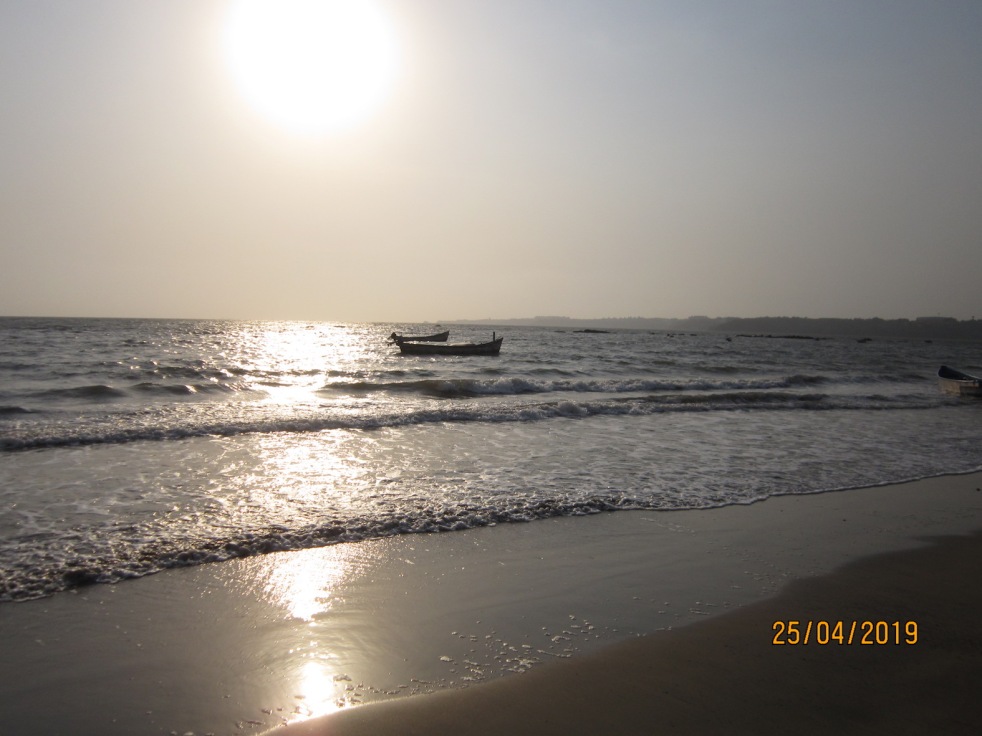
Thanks for posting these. you are becoming some of my favourite blogs!
LikeLike